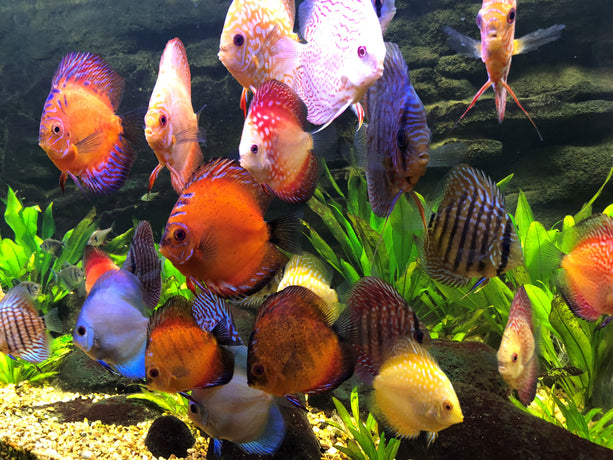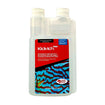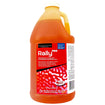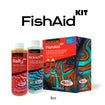- No products in the cart.
Understanding the Sustainability
of Aquatic Ecosystems.
03
Jun
Ask anyone—and chances are, they’ve had a fish or two growing up during their childhood years. But aquarium keeping has become a much bigger hobby than an opportunity to provide children with their quintessential first pet experience. Fish are the third most popular pet in the United States, according to the American Pet Products Association, next to dogs and cats.
What exactly is it that has people hooked on aquarium keeping? Two reasons stand out—technology advancement and the explosion of nano tanks, small tanks under 20 gallons in volume. Millennials with growing buying power are entering the hobby and experimenting with nano tanks, making it the number one aquarium sold in the United States. Consumers desire the variety and the flexibility nano tank kits offer because they’re easier to care for and put together than larger varieties.
With the rise of aquarium keeping, there are several issues that are important for newcomers to understand and be aware of when participating in this growing hobby.
Ethical aquarium keeping
Selecting fish that are bred ethically is an important part of responsible aquarium keeping. For freshwater aquariums, the easiest way to make sure the fish are ethically raised is to purchase species that are bred in captivity. These fish, which account for 90% of freshwater species, are already acclimated to tank conditions, won’t deplete the wild fish population, and can help preserve species that might otherwise not survive in the wild.
In addition to sourcing fish for your aquarium ethically, it’s crucial to be aware of unethical practices being used—especially for saltwater fish. 98% of saltwater fish species can’t be bred in captivity on a commercial scale. As a result, they must be taken from ocean reefs—often through the illegal use of sodium cyanide. Sodium cyanide is a highly toxic chemical compound used to stun fish so they can be easily captured. This illegal practice not only can kill fish, but destroys the surrounding coral reef, home to many species of fish.
Negative impacts to water ecosystems
When people think about the impact humans are having on the environment, they often think of large rain-forests that are being deforested or large bodies of saltwater where coral reefs are being destroyed. And, while saltwater is heavily affected by what is happening on land, fresh water is also being increasingly impacted. Since the 1970’s, there has been a decline of freshwater species by over 80%. It is important to understand what is impacting both types of ecosystems and humans are impacting these environments.
Dams and its impacts on fish migration
Although dams have helped to irrigate farmland, prevent flooding, and generate electricity, they are a huge hindrance to freshwater fish species who rely on rivers to migrate. Dams change the flow of the river and often create a block that fish cannot pass. This causes the fish to become isolated and vulnerable to predators and disease. Dams also alter the seasonal changes in river flows and fish are not able to quickly adapt to the unexpected changes.
A deadly combo: Pollution and agriculture
Pollution is another predator leading to the destruction of fish environments. Pollution—produced from factories in the form of detergents, food processing waste, and chemicals—are leaking into surrounding bodies of water. Pesticides from agriculture are also contaminating streams, rivers, and other bodies of water. While the direct exposure of pollutants is not causing fish population to decrease, it’s causing their main food source, invertebrates, to deplete and impacting the overall ecosystem.
The effect of CO2 on our oceans
Saltwater fish are also becoming endangered—in fact, there are over 5,291 marine species now tipping the scale on the Red List of Threatened Species. But what’s the cause? Deforestation, animal agriculture, and other human activities are the main culprit, emitting an abundance of CO2 that the ocean is naturally absorbing. In fact, more than 40% of the carbon dioxide emitted is being absorbed, which may have serious consequences for marine life. As CO2 reacts with saltwater, it forms carbonic acid that makes the ocean water more acidic. This acid water is causing coral reefs to shut down, leading to even further destruction of ocean ecosystems.
So, what does all this mean? It all comes down to better understanding the detrimental impact humans are having on fish and their ecosystems—but also knowing what hobbyists, who participate in aquarium keeping, need to know about how they can create positive change. By keeping ethically sourced fish and participating in activities that help keep our environment clean and healthy, aquarium and enthusiasts can keep the aquarium keeping hobby growing and ensure it’ll continue well into the future.






